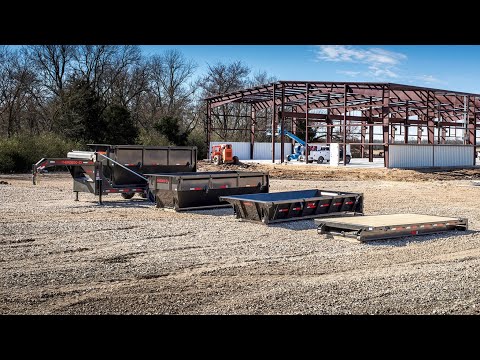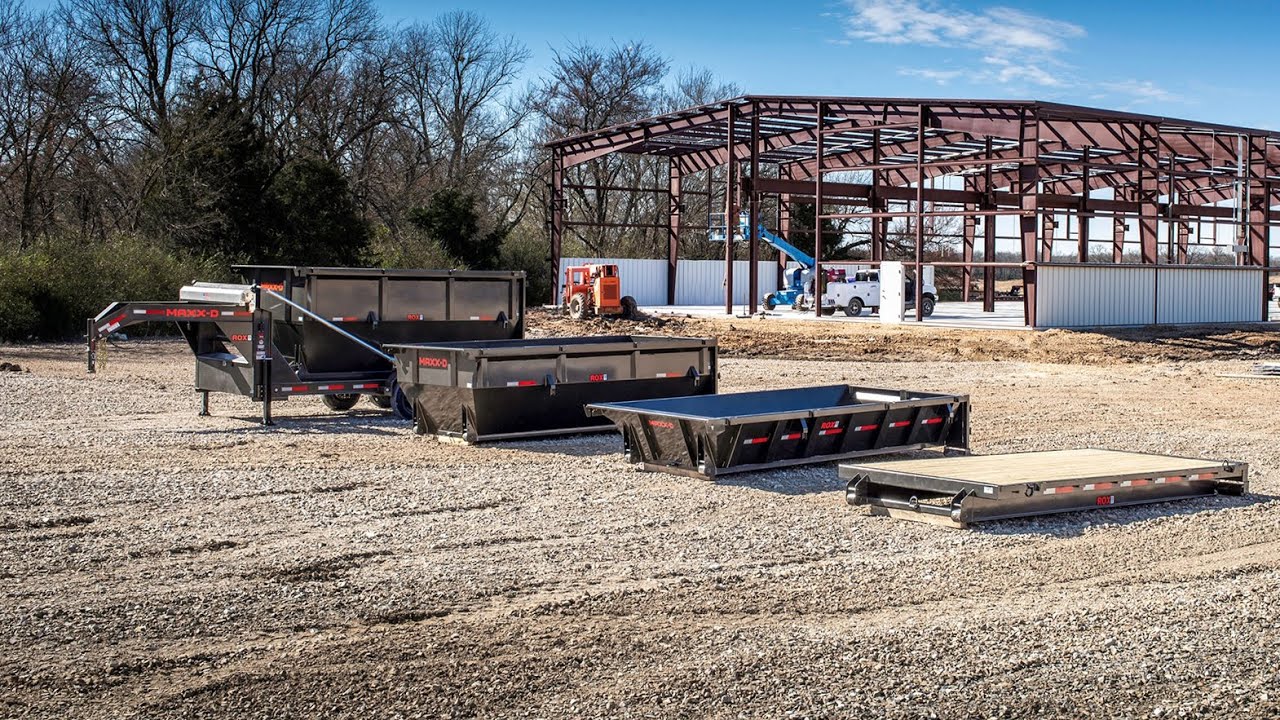A roll off is a versatile and efficient waste management solution that will revolutionize the way you handle your debris and junk removal needs. With its convenient design and heavy-duty capabilities, a roll off container offers a seamless and hassle-free experience. Whether you are undertaking a home renovation project, clearing out your garage, or managing a construction site, a roll off container provides the perfect solution to efficiently contain and remove large volumes of waste materials. Its versatility lies in its ability to be conveniently transported to your location and effortlessly placed at your desired spot, ensuring easy accessibility and efficient disposal. Say goodbye to multiple trips to the landfill and the cumbersome process of loading and unloading trucks. A roll off container lets you focus on the task at hand while ensuring a clean and organized work area. Its heavy-duty construction ensures it can handle even the toughest materials, making it suitable for a wide range of projects. Don’t let waste management be a burden; embrace the convenience, versatility, and heavy-duty capabilities of a roll off container today.

What is a Roll Off:
| Term | Description |
|---|---|
| Roll Off Container | A roll off container, also known as a dumpster or bin, is a specially designed waste management container that is typically rectangular in shape and has an open top. It is transported and placed at a desired location using a specialized truck equipped with a hydraulic hoist system. |
| Usage | Roll off containers are commonly used in construction sites, renovation projects, and various other scenarios where large amounts of waste or debris need to be efficiently collected and removed. They offer a convenient and cost-effective solution for temporary storage and transportation of waste materials. |
| Sizes | Roll off containers come in various sizes, ranging from 10 to 40 cubic yards, allowing for flexibility in waste disposal needs. The size selection depends on the volume and type of waste generated, ensuring that the container can accommodate the required capacity without causing any safety or logistical issues. |
| Transportation | Roll off containers are transported using specialized roll off trucks, also known as roll off or hooklift trucks. These trucks are equipped with hydraulic hoist systems that allow them to lift and place the containers at desired locations. The containers are securely fastened to the truck during transportation to ensure safety and prevent any spillage or accidents. |
| Waste Disposal | Once the roll off container is filled with waste, it is transported to an appropriate waste disposal facility, such as a landfill or recycling center, for proper disposal or recycling. The waste is carefully unloaded from the container and processed according to the relevant regulations and guidelines in order to minimize environmental impact. |
“MAXX-D 2021: A Game-Changing Roll-Off Dump Trailer – The ROX-14K!”
What is a Roll Off?
Roll off containers, also known as roll off dumpsters, are large open-top metal containers that are commonly used in construction and waste management industry. These containers are designed to be transported by special roll off trucks, which have a hydraulic lifting system that allows them to easily load and unload the containers.
How Does a Roll Off Work?
When a roll off container is delivered to a location, it is placed on the ground and secured to prevent any movement during loading and unloading. Once filled with materials or waste, the roll off truck will return to pick up the container and transport it to its destination.
One of the key advantages of a roll off container is its ability to be easily transported and maneuvered. The hydraulic lifting system on the roll off truck allows the container to be loaded and unloaded without the need for additional equipment or manpower. This makes roll off containers an efficient and cost-effective solution for various industries.
Common Uses of Roll Off Containers
Construction Sites: Roll off containers are commonly used in construction sites to collect and dispose of construction debris, such as concrete, wood, and metal scraps. These containers can be easily positioned in tight spaces and can handle large volumes of waste, making them ideal for construction projects of all sizes.
Waste Management: Roll off containers are also widely used in waste management operations. They can be used for temporary waste storage during renovations or cleanouts, as well as for ongoing waste collection in commercial and residential areas. Roll off containers are available in different sizes to accommodate various waste volumes.
Demolition Projects: During demolition projects, roll off containers are essential for collecting and disposing of large quantities of debris, including bricks, concrete, and other materials. These containers can be easily loaded with heavy machinery and are capable of handling the weight and volume of demolition waste.
Benefits of Using Roll Off Containers
Convenience: Roll off containers provide a convenient way to manage waste and debris. They can be delivered and picked up on a schedule that suits the needs of the project, ensuring that waste is promptly removed and the site remains clean and safe.
Cost-Effective: Renting a roll off container is often more cost-effective than using other waste disposal options, especially for large projects. Roll off containers eliminate the need for multiple trips to the landfill, reducing fuel and labor costs.
Eco-Friendly: Roll off containers are designed to facilitate proper waste disposal. By segregating different types of waste, such as recyclables and non-recyclables, these containers help promote recycling and reduce the amount of waste sent to landfills.
Choosing the Right Roll Off Container
When selecting a roll off container, consider the size, type of waste, and duration of the project. Roll off containers are available in various sizes, ranging from 10 to 40 cubic yards, to accommodate different waste volumes. It’s important to estimate the amount of waste you will generate to ensure you choose the right size container.
Additionally, consider the type of waste you will be disposing of. Some materials, such as hazardous or flammable waste, may require specific containers or additional permits for disposal. It’s important to comply with local regulations and choose a roll off container that meets your specific waste management needs.
Conclusion
Roll off containers are versatile and efficient tools used in construction, waste management, and demolition projects. They provide a convenient and cost-effective way to manage waste and debris, while promoting proper waste disposal and environmental sustainability. By understanding the benefits and considerations of using roll off containers, you can make informed decisions when it comes to waste management in your projects.
What is a Roll Off?
- A roll off is a type of waste container that is designed to be transported and emptied by a specialized truck.
- Roll off containers are commonly used in construction, demolition, and renovation projects to hold and transport large volumes of waste and debris.
- These containers have an open top and are rectangular in shape, making it easy to load and unload materials.
- Roll off containers are available in various sizes, ranging from 10 cubic yards to 40 cubic yards, to accommodate different project needs.
- They are typically made of steel and have wheels that allow them to be rolled onto the back of a truck for transportation.
- Roll off containers are delivered to a project site using a specialized truck equipped with a hydraulic system that lifts and lowers the container onto the ground.
- Once the container is full, the truck returns to pick it up and transports it to a waste disposal facility where its contents are properly disposed of or recycled.
- The versatility and convenience of roll off containers make them a popular choice for managing waste on construction sites and other large-scale projects.

